South of the Border The view from Latin America
New in Ceasefire, South of The Border - Posted on Monday, October 11, 2010 4:54 - 1 Comment
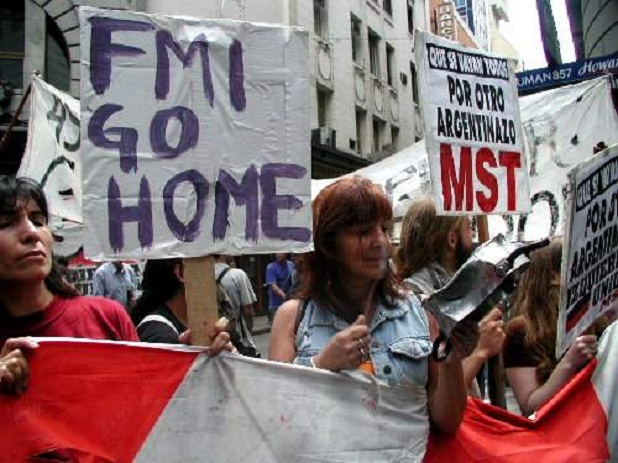 By Tom Kavanagh
By Tom Kavanagh
Argentine Central Bank president slams “failed” IMF policies
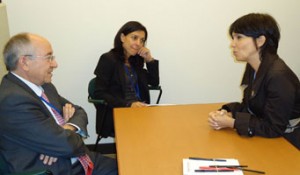 The president of the Central Bank of the Argentine Republic (BCRA), Mercedes Marcó del Pont, slammed the International Monetary Fund on Friday, decrying the body for “trying to make us believe that the policies which caused the [economic] crisis will form part of the solution.”
The president of the Central Bank of the Argentine Republic (BCRA), Mercedes Marcó del Pont, slammed the International Monetary Fund on Friday, decrying the body for “trying to make us believe that the policies which caused the [economic] crisis will form part of the solution.”
Marcó Del Pont was speaking at the annual assembly of the IMF and World Bank, held in Washington D.C.
She said that the Fund was attempting to force “failed formulas” down the throats of poorer nations, and charged that, “in reality, what the Fund is incentivising is an exchange rate appreciation that will, as a consequence, mean that developed countries export their economic stagnation to emerging economies.”
She affirmed that developing countries had an agreement “not to allow this to happen”, and said that there was a general consensus among economists from developing nations that recognised “the danger of exchange rate appreciation and [the risks] that come with short-term capital investments. That’s why we’re not going to allow the developed world to use our dynamic internal markets as a last resort.”
The Bank’s president said IMF projections for the development of the Argentinian economy were wrong, and has proposed applying controls to the movement of speculative investments “because of the risks this generates in emerging economies”, thus flying in the face of IMF diktats which favour no or low restrictions on the cross-border flow of capital. “When one looks at it from a wider perspective, the IMF has been getting a lot wrong in terms of its projections for Argentina’s economy”, charged Marcó del Pont.
The IMF is deeply unpopular in Argentina, with the organisation widely condemned for the programme of severe austerity measures that slashed public services and depreciated the value of the nation’s currency in the wake of the 2001 financial crisis which consumed the country following years of neoliberal economic policy encouraged by foreign financial institutions and governments.
As Argentina began to emerge from the ravages of military dictatorship at the end of the 1980’s, the government began to auction off national holdings such as the country’s water reserves and embarked on a fire sale whereby recently privatised former state companies were sold to foreign investors at basement-level prices in a model consistent with the legacy the IMF has left in much of Latin America. This was accompanied by deregulation of the economy and the erosion of restrictions on the inflow and outflow of capital, meaning foreign corporations took effective ownership of significant chunks of the Argentine economy.
When the money external investors had been pumping in to buy up formerly state-owned assets dried up, the government was left needing to borrow heavily in order to meet its budget deficit, and this necessitated taking billions of dollars worth of loans from the International Monetary Fund. In order to meet its debt obligations, with interest rates on “emergency loans” often as high as 70%, successive governments were forced to slash the budget allocations for public services, with a marked decline in living standards, real wages and employment figures the result.
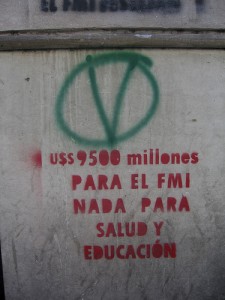 This daubing in Buenos Aires reads: “US$9.5 billion for the IMF, nothing for health and education”
This daubing in Buenos Aires reads: “US$9.5 billion for the IMF, nothing for health and education”
In 2001, BBC Newsnight journalist Greg Palast was anonymously sent several boxes of confidential IMF and World Bank documents which detailed the process by which developing nations’ economies could be gutted intentionally in order to open resource-rich nations up to greater economic liberalisation and domination by foreign banks and corporations.
One of the documents which dealt specifically with Argentina, entitled “Technical Memorandum of Understanding” and dated September 5 2000, which had been signed by then president of Argentina’s Central Bank, Pedro Pou, and addressed to IMF Managing Director Horst Kohler, informs that the IMF forced Argentina to cut its budget deficit from US$5.3 billion in 2000 to US$4.1 billion in 2001 by slashing public spending, despite the country’s already precarious economic situation.
The government was forced to cut public sector wages by up to 15% and encouraged to undertake the “rationalization of certain privileged pension benefits”. The IMF agreed an emergency loan of some US$26 billion to Argentina in 2001, of which Palast remarks, “Argentina’s people don’t net one penny… Little of the bail-out money escapes New York where it lingers to pay interest to US creditors holding the debt.” The IMF document goes on to call for “reform of the revenue sharing system”, which Palast lambasts as a “kinder, gentler way of stating that the US banks will be paid by siphoning off tax receipts earmarked for education and other provincial services.”
In a model now familiar to the populations of Greece, Spain, Iceland and the United Kingdom among others, public services were heavily cut in order to facilitate the repayment of loans to foreign creditors, with an inordinate percentage of that money earmarked for the interest which had accrued on the debt. Two weeks ago Argentinian President Cristina Kirchner publicly acknowledged that crime and insecurity figures were rising sharply, despite official figures showing that the country’s economy has grown year-on-year for eight successive years.
Underwater cable to give Cuba high-speed internet access by 2011
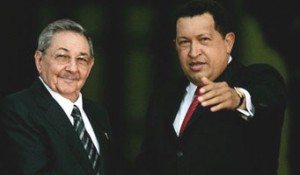 The governments of Cuba and Venezuela have announced that a project first disclosed in 2007 which will result in the laying of a 5,340 kilometer fiber-optic cable in the waters of the Caribbean Sea. The cable will connect the two nations and offering Cubans high-speed internet for the first time, will be completed by 2011. Alberto Rodríguez, Cuba’s Minister of IT and Communications, said on Friday that the cable is an important step in the strengthening of bilateral relations between the two countries.
The governments of Cuba and Venezuela have announced that a project first disclosed in 2007 which will result in the laying of a 5,340 kilometer fiber-optic cable in the waters of the Caribbean Sea. The cable will connect the two nations and offering Cubans high-speed internet for the first time, will be completed by 2011. Alberto Rodríguez, Cuba’s Minister of IT and Communications, said on Friday that the cable is an important step in the strengthening of bilateral relations between the two countries.
He also added that the project would help Cuba to “tackle future developments” as well as greatly increasing connection speeds on an island where using the internet is painfully slow. Walter Roboredo, Vice President of Telecomunicaciones de Gran Caribe, S.A (Great Caribbean Telecommunications), the company that will carry out the legwork to make the US$70 million undertaking a reality, said that the cable will make Cuban internet connections 3,000 times faster than the present system. Due in principal to the crippling U.S.-imposed blockade of the island, renewed with gusto by Barack Obama shortly after taking office, Cuba currently has no broadband internet, and an expensive satellite service currently provides Cubans with web access, which is heavily restricted and censored by the government of Raúl Castro.
Roboredo said that in addition to the increase in speed, the new cable will cut telecommunications costs for the Cuban government by around 25%. Most Cubans have extremely limited home internet access at present, with a less restricted service offered exclusively to members of government as well as some professionals such as journalists and doctors. Hotels catering for tourists have computers with unrestricted web access, but speeds are excruciatingly slow and prices of up to US$9 per hour are well beyond the reach of most Cubans, who can now enter hotels and pay to use the facilities having been prohibited from doing so until 2008.
Under a 1990’s law designed to stimulate the nation’s economy following the devastating impact of the collapse of the Soviet Union, foreign investment was permitted in Cuba’s hotel sector in order to boost tourism. Foreign companies are allowed to own up to 49% of any given hotel, with the government retaining a majority share in any enterprise. Foreign tourists flock to the island from Canada, Mexico and Europe, but the U.S. government has continued to force its citizens to seek permission which is granted only in exceptional circumstances to travel to Cuba. This cuts off a lucrative potential source of income for the island as part of an attempt to strangle the Cuban government into acquiescing to greater economic liberalisation and reparations for U.S.-registered companies which lost considerable assets when all foreign holdings in Cuba were nationalised following the 1959 revolution.
Zelaya accuses U.S. government of preventing reconciliation in Honduras
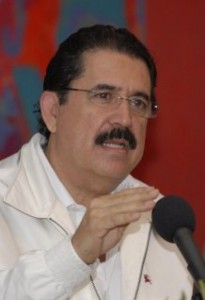 Former Honduran President Manuel Zelaya, deposed by a 2009 coup d’état carried out by members of the Central American nation’s military, has blamed the United States’ government for preventing political reconciliation in the country and criticised the Obama administration for “letting the coup go unpunished”.
Former Honduran President Manuel Zelaya, deposed by a 2009 coup d’état carried out by members of the Central American nation’s military, has blamed the United States’ government for preventing political reconciliation in the country and criticised the Obama administration for “letting the coup go unpunished”.
Zelaya, who is currently living in exile with his family in the Dominican Republic, was speaking at a meeting with supporters and sympathisers held at an undisclosed location in the Nicaraguan capital Managua, where he also met with Nicaraguan President Daniel Ortega.
The former Honduran leader said, “This position that the United States has taken over Honduras has done us a lot of damage, and is preventing reconciliation for the Honduran people. The United States gains nothing by supporting a process of right-wing violence in order to topple legitimate, progressive governments.”
Zelaya now heads the newly formed Executive Committee for the National Front of Popular Resistance for Honduras (FNRP), which refuses to recognise the sitting government of President Porfirio Lobo. The leadership of the new party was meeting with the deposed president in Nicaragua, where Zelaya said the search for peace in Honduras was “urgent”. He spoke of the need to bring about a normalisation of the country’s political system, “logically not overlooking the need to punish the human rights violations, the murders, and the persecution of the opposition which force many other Hondurans to live in exile.”
This banner says: “We condemn the coup. We support the resistance of the Honduran people.”
The former president thanked Nicaraguan leader Ortega for offering to host the FNRP gathering and “opening his doors” to the group, and for continuing to refuse to recognise the new Honduran government despite pressure from the United States. Speaking of the Obama administration’s outright support for the new government in Honduras, which won praise from Lobo during the inaugural address given as he assumed the presidency, Zelaya lamented that “the impunity which we haven’t been able to resolve in Honduras is a bad example which emboldens armed and violent forces of the extreme right in other nations because they know that at the end of the day [the world powers] will leave them alone.”
His comments are particularly poignant in the wake of an attempted coup by high ranking members of the Ecuadorian military and police which threatened the government of President Rafael Correa last week.
IN BRIEF
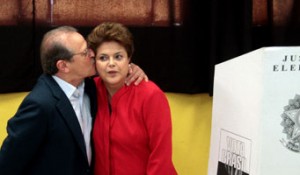 Brazil: Governing party candidate Dilma Rousseff is expected to take a comfortable victory as Brazilians vote in the second round of the country’s presidential election.
Brazil: Governing party candidate Dilma Rousseff is expected to take a comfortable victory as Brazilians vote in the second round of the country’s presidential election.
This comes in the wake of her successful first-round showing which placed the Workers’ Party (PT) nominee in a direct second round run-off with former Sao Paulo state governor and Social Democratic Party (PSDB) candidate José Serra.
Despite envisaging a victory for President Lula da Silva’s party that would give Latin America’s most populous nation it’s first ever female president, surveys estimate that Serra will inherit 51% of first round votes cast for Green Party (PV) candidate Marina Silva, with Dilma projected to win support from just 22% of those who had voted for Silva last Sunday. 39% of those questioned said they would be backing the candidate Lula endorsed, a testament to the outgoing leader’s intractable popularity, and Rousseff sits as the strong favourite for the presidency among bookmakers.
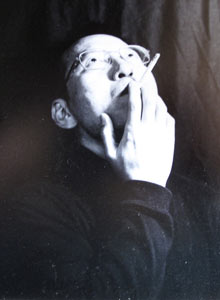 Venezuela: President Hugo Chávez has rejected a communiqué sent this week by Venezuelan opposition politicians which celebrated the award of a Nobel Peace Prize to Chinese dissident Liu Xiaobo who is currently held as a political prisoner in China. The Venezuelan leader took the opportunity to endorse the government of Chinese premier Hu Jintao, and poured scorn on statements made by members of his national opposition which called China a “totalitarian” state which “violates human rights”.
Venezuela: President Hugo Chávez has rejected a communiqué sent this week by Venezuelan opposition politicians which celebrated the award of a Nobel Peace Prize to Chinese dissident Liu Xiaobo who is currently held as a political prisoner in China. The Venezuelan leader took the opportunity to endorse the government of Chinese premier Hu Jintao, and poured scorn on statements made by members of his national opposition which called China a “totalitarian” state which “violates human rights”.
Chávez ridiculed the statement, saying “this archipelago of extreme right-wing parties tells the Chinese government that it is totalitarian, that it violates human rights… Here is our message of solidarity with the Chinese government. Long live China!” He went on to call Xiaobo a “counterrevolutionary”, and endorsed his ongoing detention at the hands of the Chinese state for “violating that country’s laws”.
He also questioned the logic in Venezuelan opposition members speaking out over the political situation in China but “applauding the invasions of Iraq and Afghanistan, where there are children orphaned, men in prison, racism etc.” Liu Xiaobo was first imprisoned following his participation in the 1989 Tiananmen Square uprising, during which it is estimated that between 400 and 800 Chinese civilians protesting in favour of governmental reform were killed by state forces.
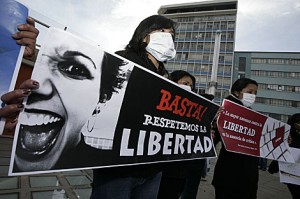 Bolivia: President Evo Morales this week announced the introduction of an Anti-Racist Law that will punish media outlets that publish material considered by the government to be racially inflammatory or offensive with fines.
Bolivia: President Evo Morales this week announced the introduction of an Anti-Racist Law that will punish media outlets that publish material considered by the government to be racially inflammatory or offensive with fines.
“The time has come to finish with the practice of racism in Bolivia because it’s the most antidemocratic thing that exists in the world because it doesn’t respect the equality among citizens” said the president as the new law was announced.
Bolivia’s first indigenous head of state criticised newspapers that publish racist opinion columns for doing so “under the pretext of exercising their freedom of expression.” He called on journalists to make sure their work was used to inform people and not “for the purpose of misleading, much less of discriminating.” Several Bolivian journalists have gone on hunger strike in protest at the passage of the new law, with editor of Santa Cruz daily El Deber, one of the the country’s highest circulating newspapers, Pedo Rivero Jordán saying that “very bad things are happening in this country… I can’t just sit on my hands.”
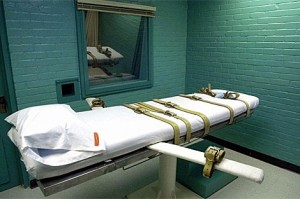 United States: Human rights organisations have warned that Latinos are the fastest growing group among the population of inmates on Death Row in the U.S., after figures released this week revealed that 383 of the 3,200 people currently awaiting execution in the country are of Latino origin. Rights groups have called attention to the fact that over 90% of those sentenced to death in the U.S. do not have adequate financial resources to appoint their own legal team, and that the undereducated and those from ethnic minority backgrounds are more likely to receive a death sentence.
United States: Human rights organisations have warned that Latinos are the fastest growing group among the population of inmates on Death Row in the U.S., after figures released this week revealed that 383 of the 3,200 people currently awaiting execution in the country are of Latino origin. Rights groups have called attention to the fact that over 90% of those sentenced to death in the U.S. do not have adequate financial resources to appoint their own legal team, and that the undereducated and those from ethnic minority backgrounds are more likely to receive a death sentence.
In 1981, 4.6% of Death Row inmates were of Latino origin, with the figure having jumped to 11.74% by the start of 2010. Latinos are the fastest growing demographic group in the United States, and at current projections will become ethnic majorities in many U.S. states during this century, particularly in southern states which share a border with or are geographically close to Mexico. Capital punishment is legal in 35 U.S. states, with California currently home to the largest Death Row population of 697, followed by Texas where 337 people are waiting to be executed.
Peru: At least 16 people are confirmed dead following a bus crash in the mountainous Huancavelica region of the country, after their vehicle plummeted into a 200-metre deep abyss whilst travelling from the town of Huancayo en route to the municipality of Pampas. The incident occurred on Saturday afternoon, and authorities fear a mechanical fault may have provoked the crash.
Tom Kavanagh, a writer and activist based in Argentina, is Latin America correspondent for Ceasefire. His column on Latin American affairs appears every Monday.
1 Comment
Ceasefire Magazine – This week in Ceasefire

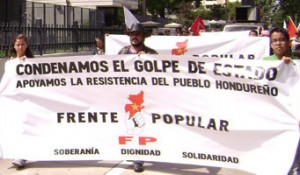

[…] South of the Border The view from Latin America […]